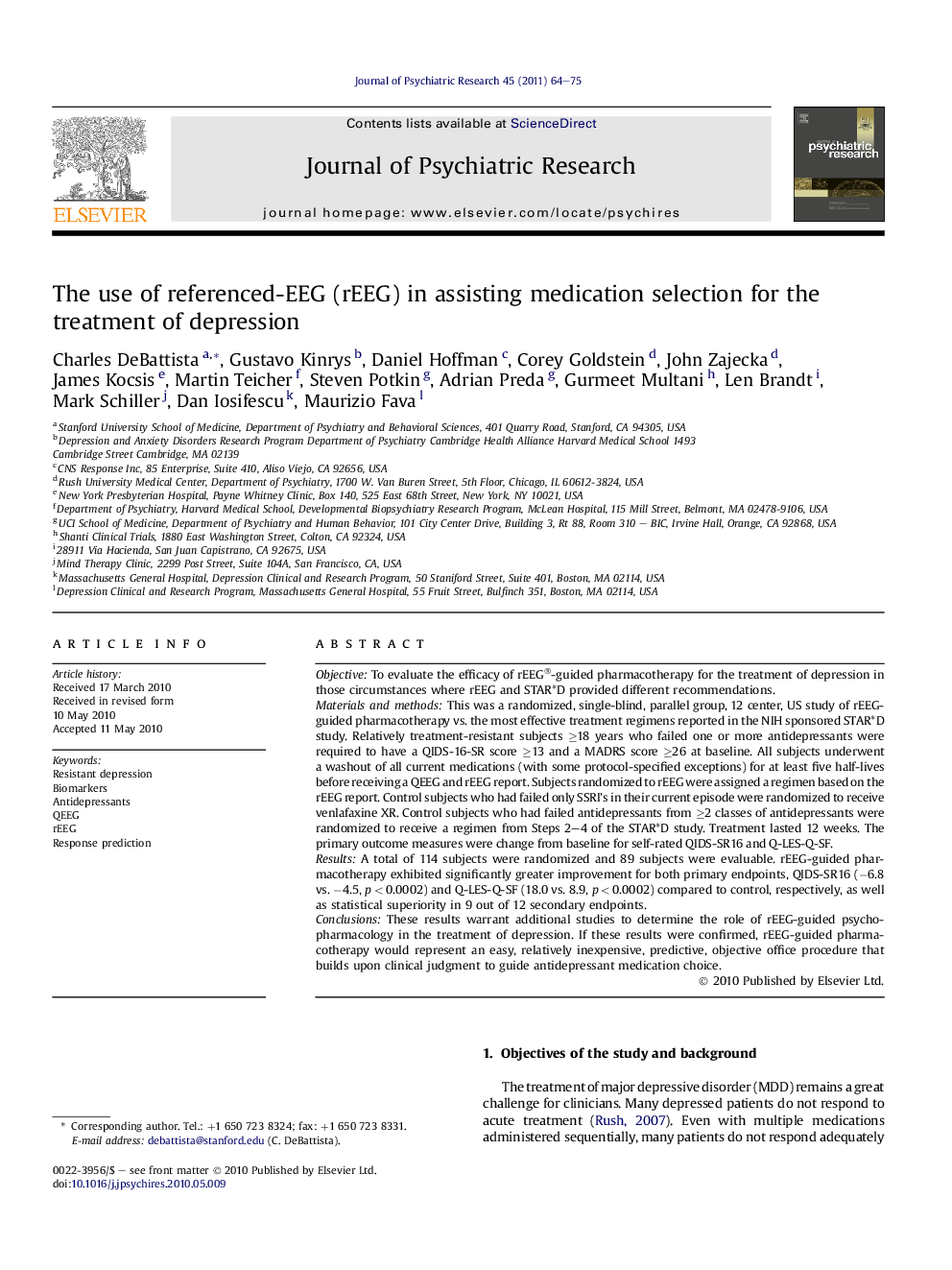| Article ID | Journal | Published Year | Pages | File Type |
|---|---|---|---|---|
| 327115 | Journal of Psychiatric Research | 2011 | 12 Pages |
ObjectiveTo evaluate the efficacy of rEEG®-guided pharmacotherapy for the treatment of depression in those circumstances where rEEG and STAR*D provided different recommendations.Materials and methodsThis was a randomized, single-blind, parallel group, 12 center, US study of rEEG-guided pharmacotherapy vs. the most effective treatment regimens reported in the NIH sponsored STAR*D study. Relatively treatment-resistant subjects ≥18 years who failed one or more antidepressants were required to have a QIDS-16-SR score ≥13 and a MADRS score ≥26 at baseline. All subjects underwent a washout of all current medications (with some protocol-specified exceptions) for at least five half-lives before receiving a QEEG and rEEG report. Subjects randomized to rEEG were assigned a regimen based on the rEEG report. Control subjects who had failed only SSRI’s in their current episode were randomized to receive venlafaxine XR. Control subjects who had failed antidepressants from ≥2 classes of antidepressants were randomized to receive a regimen from Steps 2–4 of the STAR*D study. Treatment lasted 12 weeks. The primary outcome measures were change from baseline for self-rated QIDS-SR16 and Q-LES-Q-SF.ResultsA total of 114 subjects were randomized and 89 subjects were evaluable. rEEG-guided pharmacotherapy exhibited significantly greater improvement for both primary endpoints, QIDS-SR16 (−6.8 vs. −4.5, p < 0.0002) and Q-LES-Q-SF (18.0 vs. 8.9, p < 0.0002) compared to control, respectively, as well as statistical superiority in 9 out of 12 secondary endpoints.ConclusionsThese results warrant additional studies to determine the role of rEEG-guided psychopharmacology in the treatment of depression. If these results were confirmed, rEEG-guided pharmacotherapy would represent an easy, relatively inexpensive, predictive, objective office procedure that builds upon clinical judgment to guide antidepressant medication choice.
